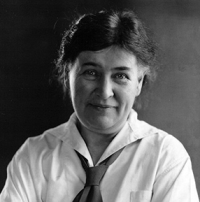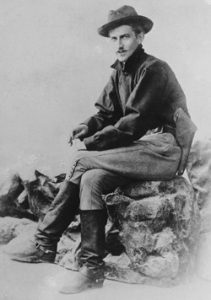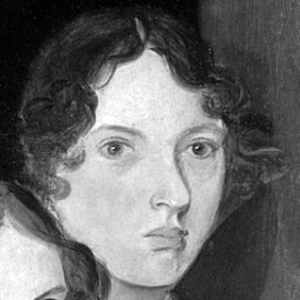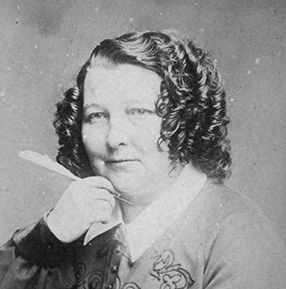Fleurs du Mal Magazine


Or see the index

Woman’s Constancy
Now thou has loved me one whole day,
Tomorrow when you leav’st, what wilt thou say?
Wilt thou then antedate some new-made vow?
Or say that now
We are not just those persons which we were?
Or, that oaths made in reverential fear
Of Love, and his wrath, any may forswear?
Or, as true deaths true marriages untie,
So lovers’ contracts, images of those,
Bind but till sleep, death’s image, them unloose?
Or, your own end to justify,
For having purposed change and falsehood, you
Can have no way but falsehood to be true?
Vain lunatic, against these ‘scapes I could
Dispute and conquer, if I would,
Which I abstain to do,
For by tomorrow, I may think so too.
John Donne
(1572–1631)
Woman’s Constancy
• fleursdumal.nl magazine
More in: Archive C-D, Archive C-D, Donne, John

I Sought the Wood in Winter
I sought the wood in summer
When every twig was green;
The rudest boughs were tender,
And buds were pink between.
Light-fingered aspens trembled
In fitful sun and shade,
And daffodils were golden
In every starry glade.
The brook sang like a robin—
My hand could check him where
The lissome maiden willows
Shook out their yellow hair.
“How frail a thing is Beauty,”
I said, “when every breath
She gives the vagrant summer
But swifter woos her death.
For this the star dust troubles,
For this have ages rolled:
To deck the wood for bridal
And slay her with the cold.”
I sought the wood in winter
When every leaf was dead;
Behind the wind-whipped branches
The winter sun set red.
The coldest star was rising
To greet that bitter air,
The oaks were writhen giants;
Nor bud nor bloom was there.
The birches, white and slender,
In deathless marble stood,
The brook, a white immortal,
Slept silent in the wood.
“How sure a thing is Beauty,”
I cried. “No bolt can slay,
No wave nor shock despoil her,
No ravishers dismay.
Her warriors are the angels
That cherish from afar,
Her warders people Heaven
And watch from every star.
The granite hills are slighter,
The sea more like to fail;
Behind the rose the planet,
The Law behind the veil.”
Willa Cather
(1873 – 1947)
I Sought the Wood in Winter
• fleursdumal.nl magazine
More in: # Classic Poetry Archive, 4SEASONS#Winter, Archive C-D, Archive C-D

Les quatre saisons – L’hiver
C’est l’hiver. Le charbon de terre
Flambe en ma chambre solitaire.
La neige tombe sur les toits.
Blanche ! Oh, ses beaux seins blancs et froids!
Même sillage aux cheminées
Qu’en ses tresses disséminées.
Au bal, chacun jette, poli,
Les mots féroces de l’oubli,
L’eau qui chantait s’est prise en glace,
Amour, quel ennui te remplace!
Charles Cros
(1842 – 1888)
Les quatre saisons – L’hiver
• fleursdumal.nl magazine
More in: 4SEASONS#Winter, Archive C-D, Archive C-D, Cros, Charles

Vergissmeinnicht
(Forget-me-not))
Three weeks gone and the combatants gone
returning over the nightmare ground
we found the place again, and found
the soldier sprawling in the sun.
The frowning barrel of his gun
overshadowing. As we came on
that day, he hit my tank with one
like the entry of a demon.
Look. Here in the gunpit spoil
the dishonoured picture of his girl
who has put: Steffi. Vergissmeinnicht.
in a copybook gothic script.
We see him almost with content,
abased, and seeming to have paid
and mocked at by his own equipment
that’s hard and good when he’s decayed.
But she would weep to see today
how on his skin the swart flies move;
the dust upon the paper eye
and the burst stomach like a cave.
For here the lover and killer are mingled
who had one body and one heart.
And death who had the soldier singled
has done the lover mortal hurt.
Keith Douglas
(1920 – 1944)
Vergissmeinnicht (Forget-me-not)
• fleursdumal.nl magazine
More in: Archive C-D, Archive C-D, Douglas, Keith, WAR & PEACE

No Man Is an Island
No man is an island,
Entire of itself;
Every man is a piece of the continent,
A part of the main.
If a clod be washed away by the sea,
Europe is the less,
As well as if a promontory were:
As well as if a manor of thy friend’s
Or of thine own were.
Any man’s death diminishes me,
Because I am involved in mankind.
And therefore never send to know for whom the bell tolls;
It tolls for thee.
John Donne
(1572–1631)
No Man Is an Island
• fleursdumal.nl magazine
More in: Archive C-D, Archive C-D, Donne, John

I saw a man
pursuing the horizon
I saw a man pursuing the horizon;
Round and round they sped.
I was disturbed at this;
I accosted the man.
“It is futile,” I said,
“You can never —”
“You lie,” he cried,
And ran on.
Stephen Crane
(1871 – 1900)
I saw a man pursuing the horizon
• fleursdumal.nl magazine
More in: *War Poetry Archive, Archive C-D, Archive C-D, Stephen Crane

A Burnt Ship
Out of a fired ship, which by no way
But drowning could be rescued from the flame,
Some men leap’d forth, and ever as they came
Near the foes’ ships, did by their shot decay;
So all were lost, which in the ship were found,
They in the sea being burnt, they in the burnt ship drown’d.
John Donne
(1572–1631)
A Burnt Ship
• fleursdumal.nl magazine
More in: Archive C-D, Archive C-D, Donne, John

Simplify Me When I’m Dead
Remember me when I am dead
and simplify me when I’m dead.
As the processes of earth
strip off the colour of the skin:
take the brown hair and blue eye
and leave me simpler than at birth,
when hairless I came howling in
as the moon entered the cold sky.
Of my skeleton perhaps,
so stripped, a learned man will say
“He was of such a type and intelligence,” no more.
Thus when in a year collapse
particular memories, you may
deduce, from the long pain I bore
the opinions I held, who was my foe
and what I left, even my appearance
but incidents will be no guide.
Time’s wrong-way telescope will show
a minute man ten years hence
and by distance simplified.
Through that lens see if I seem
substance or nothing: of the world
deserving mention or charitable oblivion,
not by momentary spleen
or love into decision hurled,
leisurely arrive at an opinion.
Remember me when I am dead
and simplify me when I’m dead.
Keith Douglas
(1920 – 1944)
Simplify Me When I’m Dead
• fleursdumal.nl magazine
More in: Archive C-D, Archive C-D, Douglas, Keith, WAR & PEACE

To a Wreath of Snow
O transient voyager of heaven!
O silent sign of winter skies!
What adverse wind thy sail has driven
To dungeons where a prisoner lies?
Methinks the hands that shut the sun
So sternly from this morning’s brow
Might still their rebel task have done
And checked a thing so frail as thou.
They would have done it had they known
The talisman that dwelt in thee,
For all the suns that ever shone
Have never been so kind to me!
For many a week, and many a day
My heart was weighed with sinking gloom
When morning rose in mourning grey
And faintly lit my prison room
But angel like, when I awoke,
Thy silvery form so soft and fair
Shining through darkness, sweetly spoke
Of cloudy skies and mountains bare;
The dearest to a mountaineer
Who, all life long has loved the snow
That crowned her native summits drear,
Better, than greenest plains below.
And voiceless, soulless, messenger
Thy presence waked a thrilling tone
That comforts me while thou art here
And will sustain when thou art gone
Emily Brontë
(1818 – 1848)
To a Wreath of Snow
• fleursdumal.nl magazine
More in: # Classic Poetry Archive, 4SEASONS#Winter, Archive A-B, Archive C-D, Brontë, Anne, Emily & Charlotte

Winter
We know ’tis good that old Winter should come,
Roving awhile from his Lapland home;
’Tis fitting that we should hear the sound
Of his reindeer sledge on the slippery ground:
For his wide and glittering cloak of snow
Protects the seeds of life below;
Beneath his mantle are nurtured and born
The roots of the flowers, the germs of the corn.
The whistling tone of his pure strong breath
Rides purging the vapours of pestilent death.
I love him, I say, and avow it again,
For God’s wisdom and might show well in his train.
But the naked—the poor! I know they quail
With crouching limbs from the biting gale;
They pine and starve by the fireless hearth,
And weep as they gaze on the frost-bound earth.
Stand nobly forth, ye rich of the land,
With kindly heart and bounteous hand;
Remember ’tis now their season of need,
And a prayer for help is a call ye must heed.
A few of thy blessings, a tithe of thy gold,
Will save the young, and cherish the old.
’Tis a glorious task to work such good—
Do it, ye great ones! Ye can, and ye should.
He is not worthy to hold from heaven
The trust reposed, the talents given,
Who will not add to the portion that’s scant,
In the pinching hours of cold and want.
Oh! listen in mercy, ye sons of wealth,
Basking in comfort and glowing with health;
Give whate’er ye can spare, and be ye sure
He serveth his Maker who aideth the poor.
Eliza Cook
(1818 – 1889}
Winter
From: Melaia and Other Poems (1840)
• fleursdumal.nl magazine
More in: # Classic Poetry Archive, 4SEASONS#Winter, Archive C-D, Archive C-D

The Knife
Can I explain this to you? Your eyes
are entrances the mouths of caves
I issue from wonderful interiors
upon a blessed sea and a fine day,
from inside these caves I look and dream.
Your hair explicable as a waterfall
in some black liquid cooled by legend
fell across my thought in a moment
became a garment I am naked without
lines drawn across through morning and evening.
And in your body each minute I died
moving your thigh could disinter me
from a grave in a distant city:
your breasts deserted by cloth, clothed in twilight
filled me with tears, sweet cups of flesh.
Yes, to touch two fingers made us worlds
stars, waters, promontories, chaos
swooning in elements without form or time
come down through long seas among sea marvels
embracing like survivors in our islands.
This I think happened to us together
though now no shadow of it flickers in your hands
your eyes look down on ordinary streets
If I talk to you I might be a bird
with a message, a dead man, a photograph.
Keith Douglas
(1920 – 1944)
The Knife
• fleursdumal.nl magazine
More in: Archive C-D, Archive C-D, Douglas, Keith, WAR & PEACE

Do not weep, maiden, for war is kind
Do not weep, maiden, for war is kind.
Because your lover threw wild hands toward the sky
And the affrighted steed ran on alone,
Do not weep.
War is kind.
Hoarse, booming drums of the regiment,
Little souls who thirst for fight,
These men were born to drill and die.
The unexplained glory flies above them,
Great is the battle-god, great, and his kingdom—
A field where a thousand corpses lie.
Do not weep, babe, for war is kind.
Because your father tumbled in the yellow trenches,
Raged at his breast, gulped and died,
Do not weep.
War is kind.
Swift, blazing flag of the regiment,
Eagle with crest of red and gold,
These men were born to drill and die.
Point for them the virtue of slaughter,
Make plain to them the excellence of killing
And a field where a thousand corpses lie.
Mother whose heart hung humble as a button
On the bright splendid shroud of your son,
Do not weep.
War is kind.
Stephen Crane
(1871 – 1900)
Do not weep, maiden, for war is kind
from: War is Kind
•fleursdumal.nl magazine
More in: *War Poetry Archive, Archive C-D, Archive C-D, Stephen Crane
Thank you for reading Fleurs du Mal - magazine for art & literature